Prime Suspect writer Lynda La Plante: ‘Line of Duty and Unforgotten? I find them preposterous’
The hit crime writer changed the face of television with her groundbreaking female DCI Jane Tennison, who was played by Helen Mirren. But, she tells Charlotte Cripps, the TV production companies wanted nothing to do with the show at first

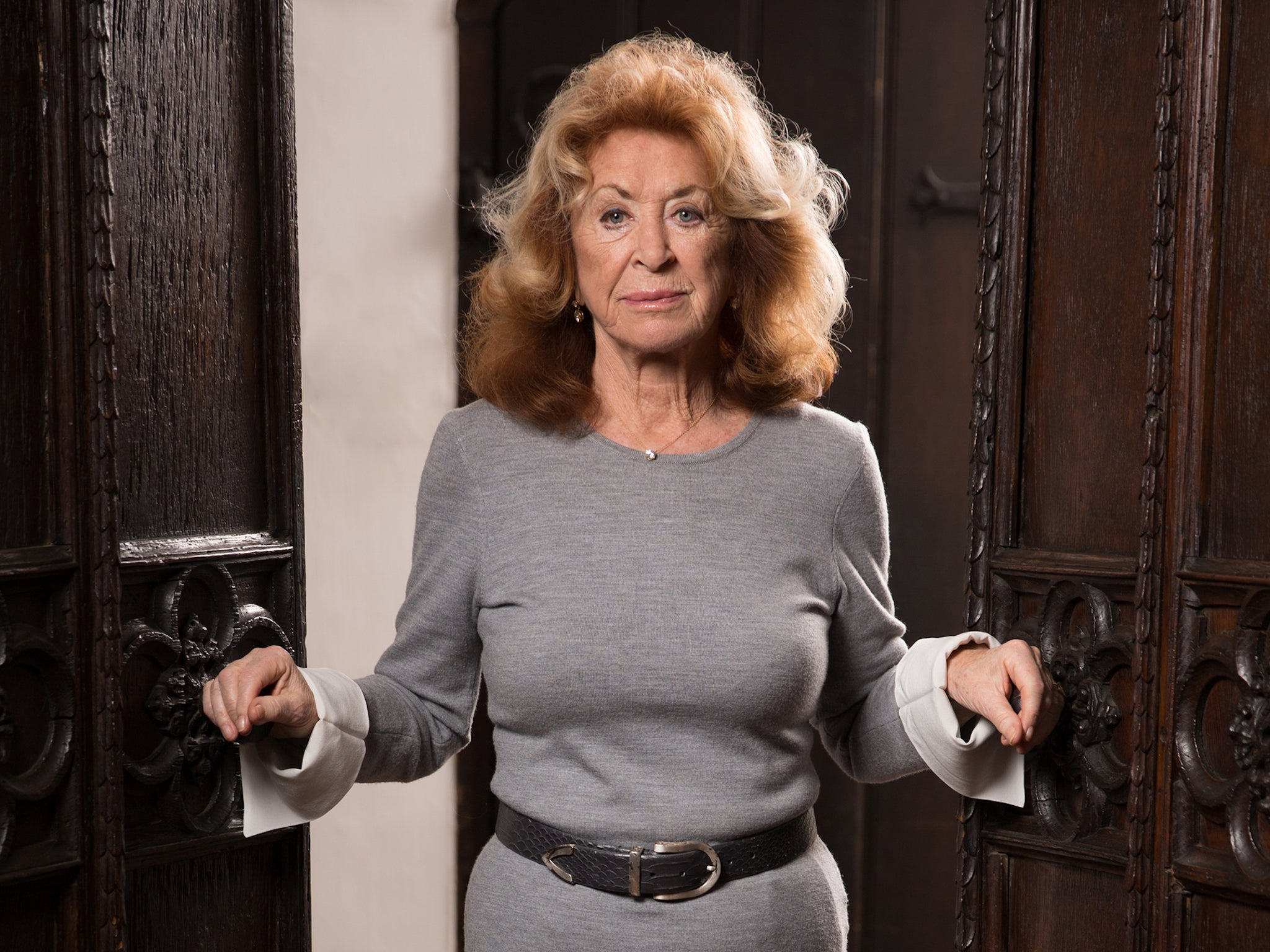
Your support helps us to tell the story
From reproductive rights to climate change to Big Tech, The Independent is on the ground when the story is developing. Whether it's investigating the financials of Elon Musk's pro-Trump PAC or producing our latest documentary, 'The A Word', which shines a light on the American women fighting for reproductive rights, we know how important it is to parse out the facts from the messaging.
At such a critical moment in US history, we need reporters on the ground. Your donation allows us to keep sending journalists to speak to both sides of the story.
The Independent is trusted by Americans across the entire political spectrum. And unlike many other quality news outlets, we choose not to lock Americans out of our reporting and analysis with paywalls. We believe quality journalism should be available to everyone, paid for by those who can afford it.
Your support makes all the difference.They didn’t even want to do it, to begin with – they hated it,” says the crime writer Lynda La Plante of her hit TV show Prime Suspect.
The issue, continues the 78-year-old, was that Granada TV thought that DCI Jane Tennison “was so unfeminine. I even got a note saying, ‘Oh god, she touches the dead body.’ They dismissed it. They said, ‘We’re very, very sorry, but we have decided to go with this Spanish cop show. No one will want to see this.’ Then they turned around slowly. Very, very slowly.”
La Plante is sitting in her home office in bosky Kingston, dressed in a white polo neck, with flouncy auburn and blond hair. As she mouths “slowly”, pronouncing each syllable delicately, it sounds like she’s about to reveal the killer in one of her many crime thrillers – she’s currently promoting her latest, Judas Horse – rather than the change of heart Granada TV had after a bidding war erupted over the script.
It’s all water under the bridge now for the Liverpudlian La Plante, who has lost any trace of an accent and is one of only three screenwriters to have been made an honorary fellow at the British Film Institute. Nestled on a shelf behind her are the three Baftas that she won for Prime Suspect, which is celebrating its 30th anniversary this year.
When it first aired in 1991, the show was groundbreaking. With Helen Mirren as the tenacious DCI, squashing sexism and adversity in the workplace, it was the first time a “believable” female police officer had been put front and centre in a crime drama.
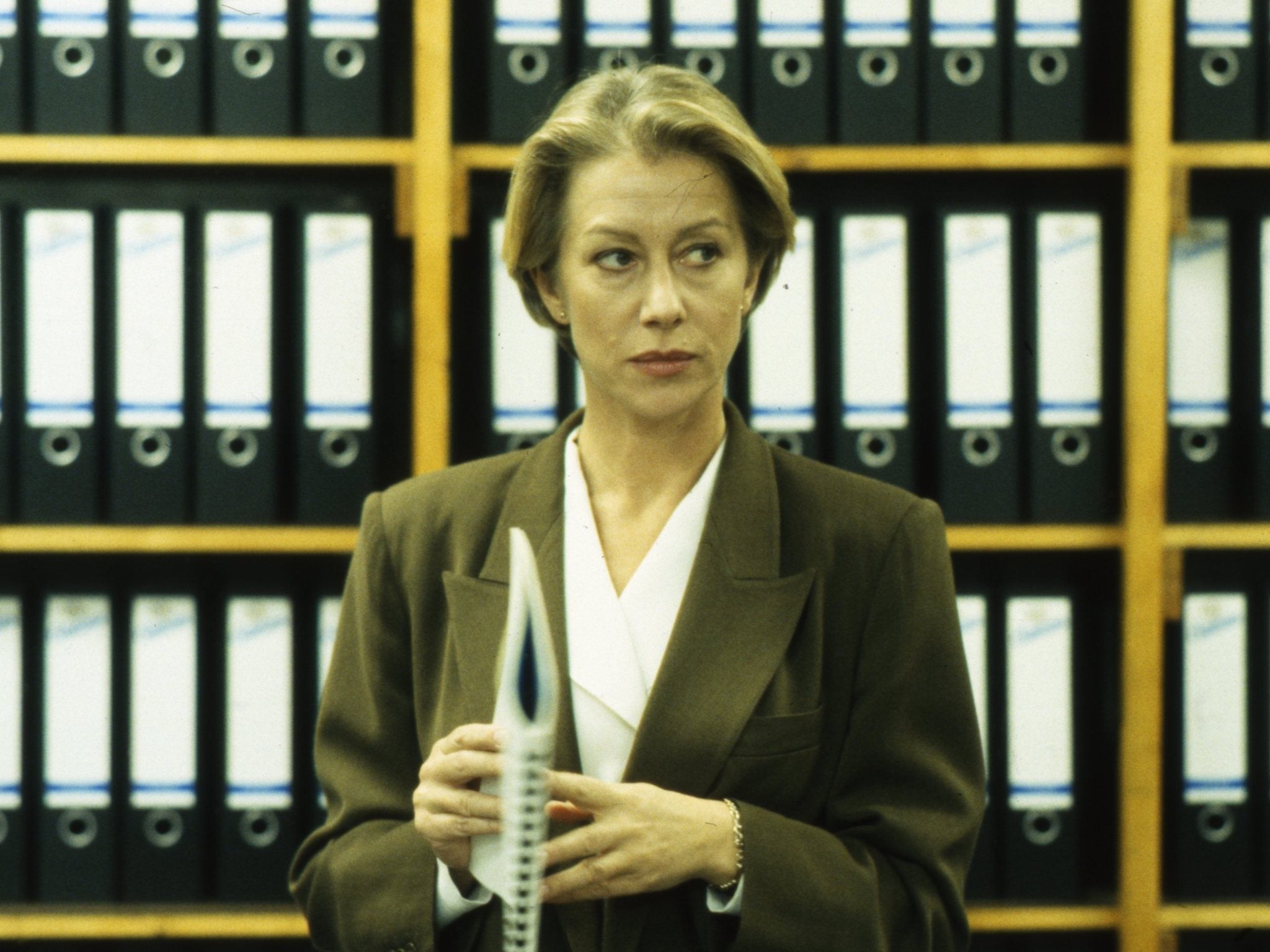
I ask La Plante if she watches other police dramas like Line of Duty or Unforgotten. “No,” is the short answer. She has written off the whole genre – apart from Sally Wainwright’s Happy Valley, which she rates highly. “I find the dramatic licence preposterous,” she says of the rest of them. “So I’m not interested. I watch a lot of true crime because for me that is far more informative.”
The main bone of contention for La Plante is excessive violence and the youthful ages of the DCIs. “You think – how can you be a DCI at your age? They are far too young. It’s a very high rank. You need a lot of experience.”
Jane Tennison was based on a real person – TV script consultant and former senior police officer Jackie Malton. “And the whole point of it was to get somebody the right age,” explains La Plante. “Helen [Mirren] was in her 40s. You can’t get to be a detective chief inspector in plain clothes at 22 and 23.”
La Plante lives with her 18-year-old son Lorcan, his girlfriend, and the dogs – Max, a cockapoo and Pluto, a whippet. She hasn’t been out socially for over a year because of the Covid pandemic. But she says: “You know, for me as a writer, I do solitary hour by hour anyway.”
Everything has broken lately: the fridge freezer packed it in; the roof needs repairing; the chimney fell off; the gutters are clogged up. “I keep thinking, ’Can anything else go wrong?’”
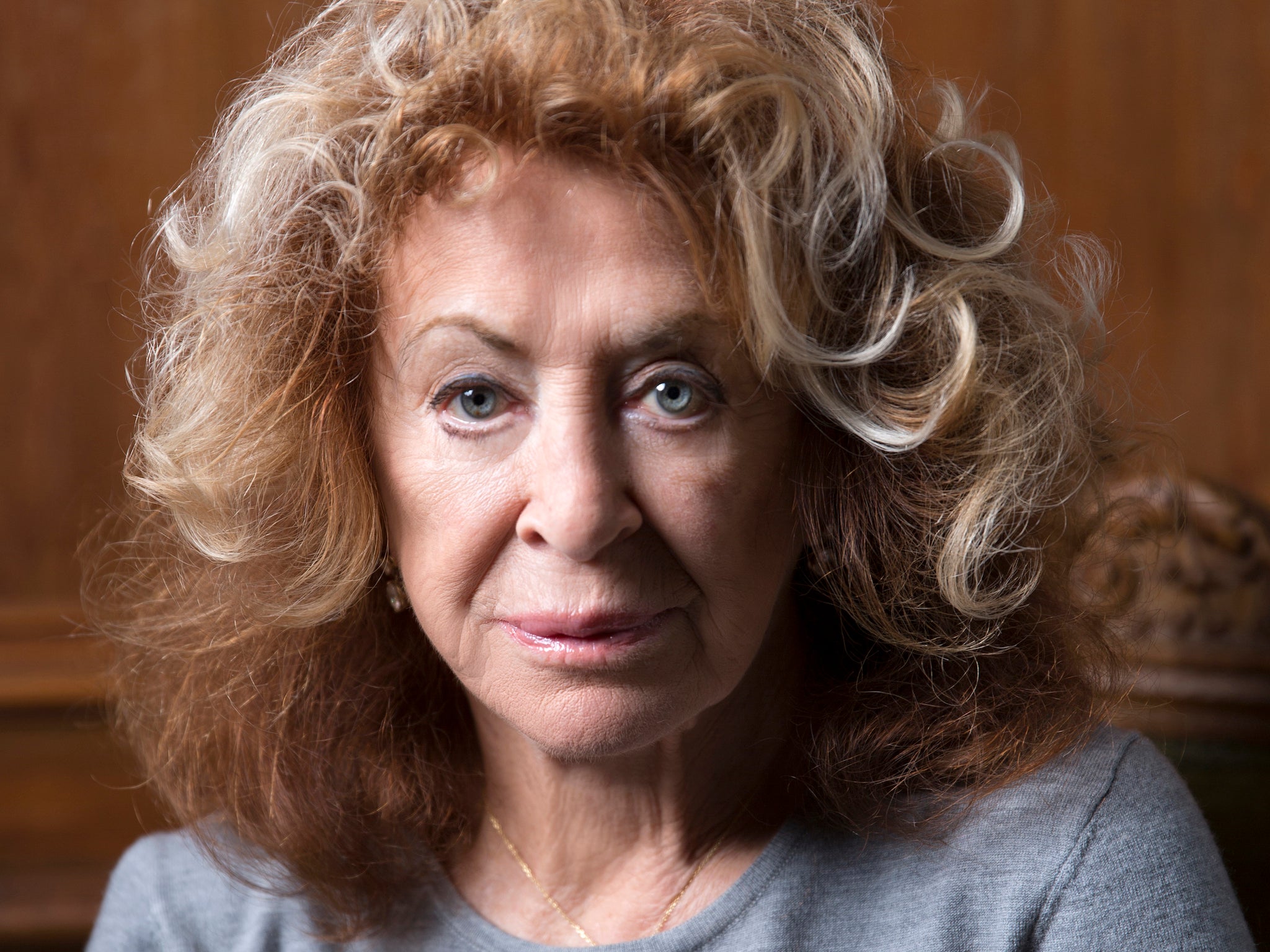
She’s got “no staff” because of the pandemic – she’s even doing the cleaning. She’s a bit obsessive; she has a habit of polishing taps when she spots “green gunge” under the rim. Even the Bafta awards “are going green”. “You can’t polish them. I don’t know what they are made of.” Order isn’t easy with a teenage son. “I just find a screwdriver left in the middle of the sofa. And you think, ‘Does he never put away anything?’ No, nothing.”
La Plante is averaging “four books” a year – “that’s pretty much writing 24/7”, she says. It’s impressive. Her new book, Judas Horse, is the second in the Detective Jack Warr crime series after last year’s Buried. This one is about violent burglars terrorising residents in the Cotswolds, near to the celebrity hotspot Soho Farmhouse.
Things get heavy when a mutilated body is discovered, as well as a dead labrador stabbed through the ear with an ornate letter opener. DC Warr and his team use an informant as a “Judas horse” – a term used for a mustang stallion that is tamed and sent back to the wild to lead the rest of the herd back to the ranch.
“I had the title for years,” says La Plante. “When I knew what ‘Judas horse’ meant I liked it and kept it because ‘Judas horse’ is you know, the ultimate betrayal.”
It’s a compelling read, full of humour and vivid details – even if it’s a bit outdated at times. Warr – a detective who is not a good team player and never punctual – is also an expectant dad. He refers to his pregnant partner Maggie unflatteringly as his “beautiful, beached whale fiancee”.
He wants to escape conversations about “pelvic floor muscles” and “piles”. His mum, Penny, lives with them and watches reruns of Lovejoy. On a date night, he can’t see Maggie’s head over the bump. She does a lot of “waddling”.
We learn that “Jack far preferred the mind games of criminals to the mind games of his wife and mother”. After the baby is born, Jack is “yearning” for a murder investigation to get him out of the house.
“The baby terrifies him, the thought of it, the responsibility, because he’s not really very responsible,” says La Plante in his defence, when I ask her if Jack’s mindset is a little sexist. “And the fact that he has got Maggie is a wonder to him, because there’s darkness inside him.”
La Plante’s own path to motherhood was very different to Maggie’s. Like Jack, her son Lorcan was adopted, in his case as a newborn baby in 2003, when La Plante was 59. She’d had a series of miscarriages with her ex-husband, American musician Richard La Plante, to whom she was married for 17 years until their divorce in 1996.
“I had so many miscarriages and there was a point where I said, ‘No that’s it, over. It’s finished,’” she says. “And I got a great dane. Then one day I was on a beach in the Hamptons with some friends and I saw this young mother with a two-year-old on her hip with her little legs dangling… and the emotion I felt… because I thought, ‘I will never know what that is like.’ And the pain was still there. And then I got the call that night [from an adoption agency]. There is a baby. It was extraordinary.”
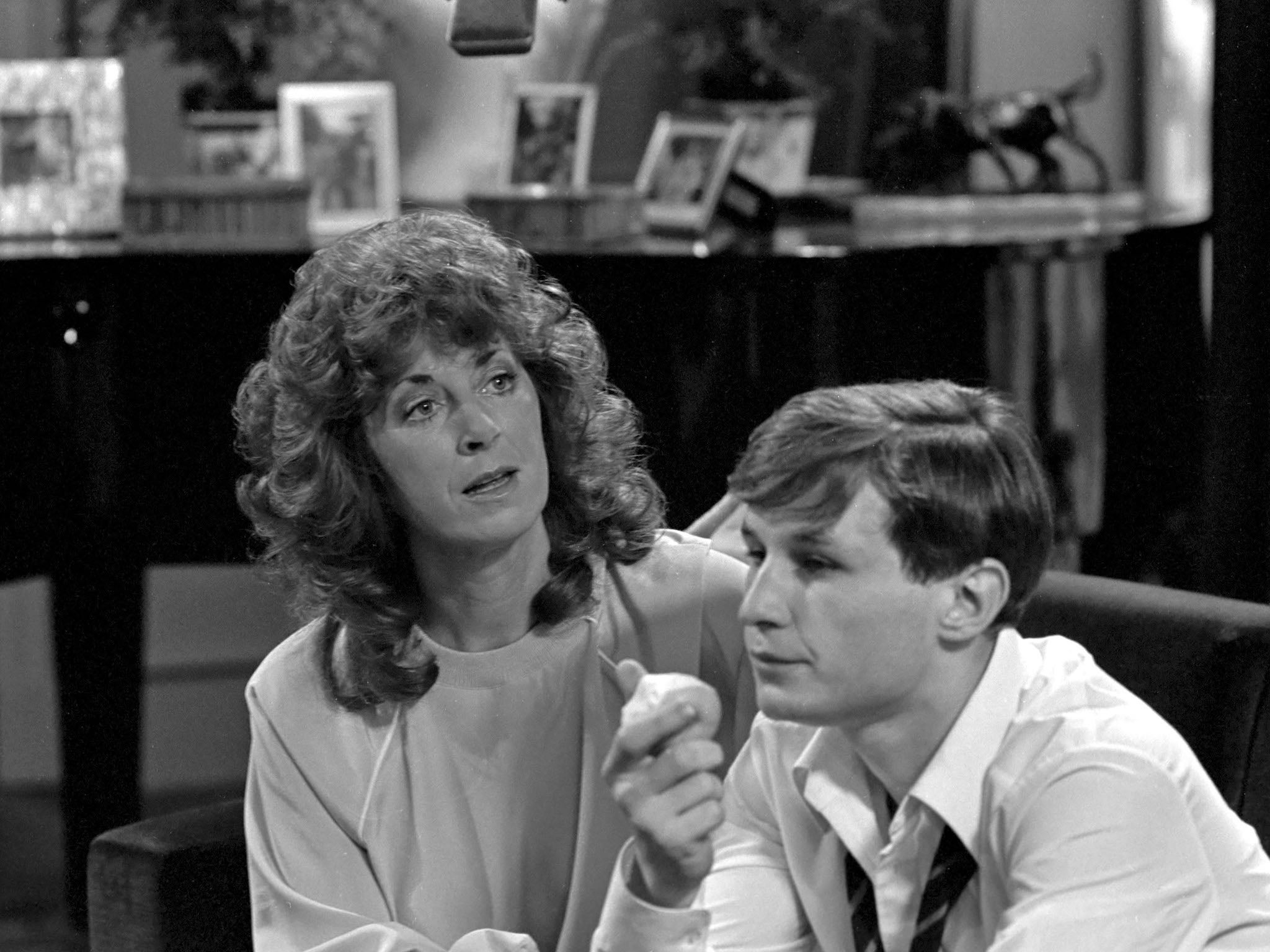
La Plante, who had been to so many different adoption agencies in America and England that she lost count, was given 24 hours to get to Florida. “Off I went. All by myself. No backup. Nobody there. I went to the birth. The fear was unbelievable. That was it.”
When she brought her son back to the UK, she was harassed by the press. “It was appalling. I mean, they were camped in my bins trying to find out about him – was he black or was he white? Because I’d done it all in secret – I’d just done it.”
She also found herself judged for being an older mum. “It’s a fascination – particularly if you are semi-famous,” she says. “You’re not a normal woman at a school gate – oh, you are Lynda La Plante, the crime writer.”
Parenting, naturally, has its “trials and tribulations”. “I find my overprotective mother instinct never ceases to amaze me,” she says. “There is a lot of unpleasantness out there ready to seep into you. I just find the unkindness so exasperating.”
Her mistake, she says, was sending Lorcan to a prestigious boarding school in Oxford – but he was “so eager” to go. “I mean, can you imagine getting a phone call from the school when your son says, ‘I’m being attacked by an iron bar and a sock full of nails and I don’t know what to do, mother?’ Did the school do anything about it? No, because they are Russian pupils with an awful lot of money and they are buying the rowing boats and buying the building… Can you believe the housemaster saying to me, ‘Well, they were small nails?’”
La Plante was born in Liverpool in 1943. Her father, Bill, was golf mad and her mother, “Flossie”, was a Liverpool FC supporter who wouldn’t watch anything of her daughter’s on TV if it meant missing a match. Such was her lack of interest that Flossie once asked who wrote Prime Suspect, three series in.
But La Plante, her brother Michael and sister Gillian had a lot of freedom as children, riding bikes in the nearby woods and going to the beach in Great Crosby. Another sister, Dale, died before La Plante was born, in a road traffic accident aged six.
La Plante trained at Rada, where fellow students included Anthony Hopkins and John Hurt – but was told her job prospects weren’t good because she was “short and plain”.
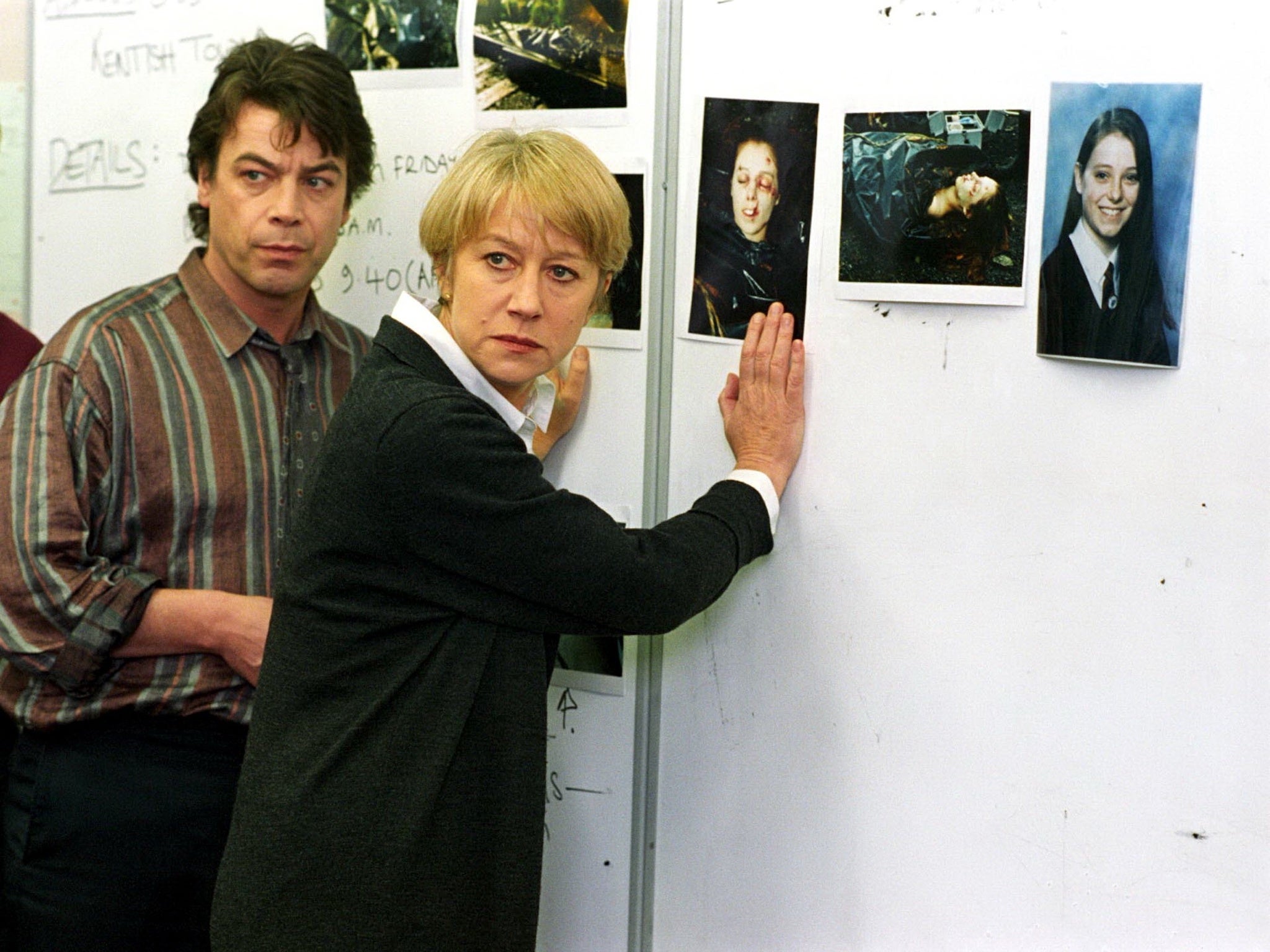
She gave it a shot anyway. As Lynda Marchal, her stage name, she appeared in The Sweeney, The Professionals, and Bergerac. She was also the hay-fever-suffering ghost Tamara Novek in the BBC children’s series Rentaghost.
It was while filming ITV’s The Gentle Touch in 1980 – the first police drama series with a female protagonist and clearly a forerunner of Prime Suspect – that La Plante felt she wanted to write more realistic dialogue herself. She wrote the hit Eighties TV series Widows – an all-female heist drama – for Thames Television in 1983.
She quickly became a sought-after crime writer, rattling out bestsellers – the Cold series, the Anna Travis series, and the young Jane Tennison series, including 2020’s Blunt Force – as well as writing and producing hit TV shows. There was ITV’s police drama Trial & Retribution (1997-2009); Above Suspicion (2009-2012); and, of course, Prime Suspect.
For somebody who spends her life looking at criminal behaviour, La Plante is very trusting. She once hired a chauffeur who knocked on her door brandishing a CV from “a very posh person”. It turned out he had been in prison. “So I said, ‘All right, what were you in prison for?’ And he said, ‘I’m a cat burglar.’ So I said, ‘All right, I’ll hire you.’ It was so informative. I never forgot a single thing he told me.”
That’s La Plante’s secret: she’s got inside information.
Judas Horse is published by Zaffre, £14.99


Join our commenting forum
Join thought-provoking conversations, follow other Independent readers and see their replies
Comments